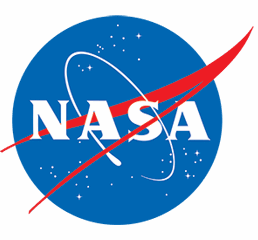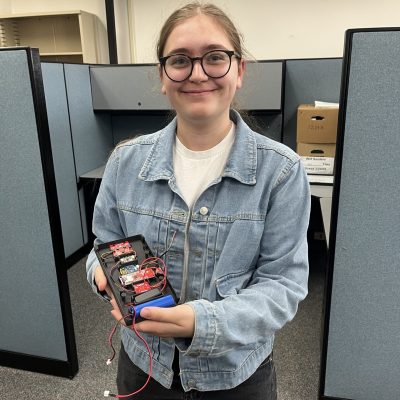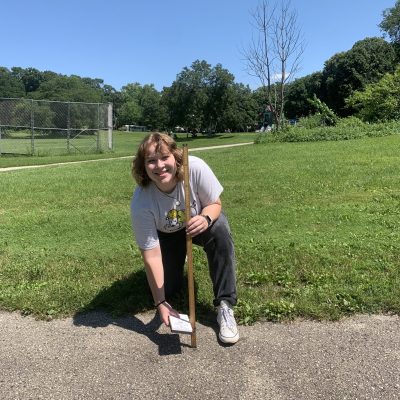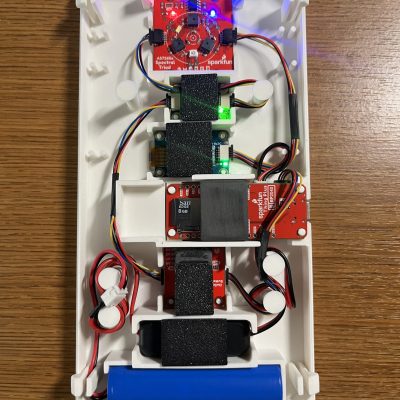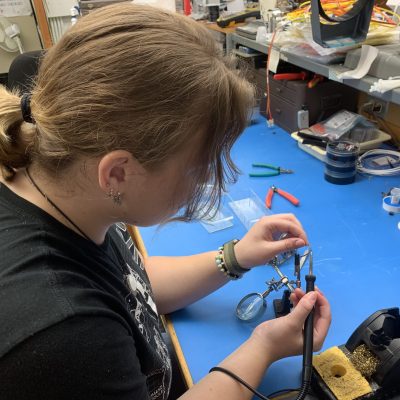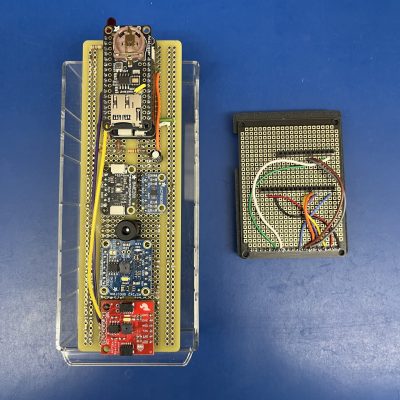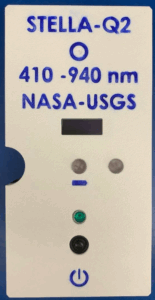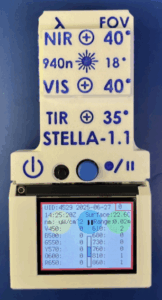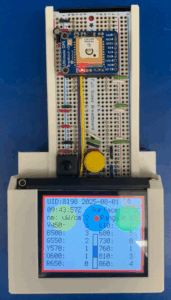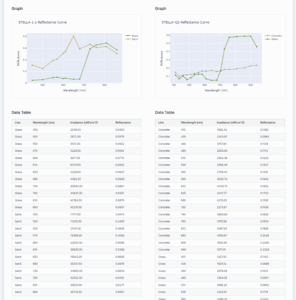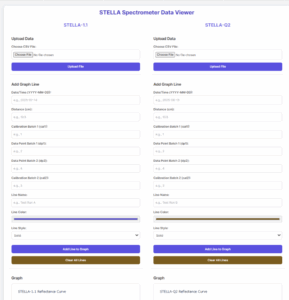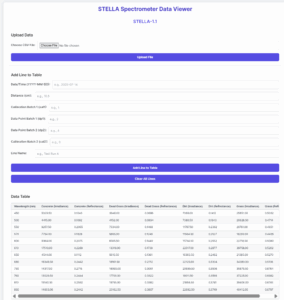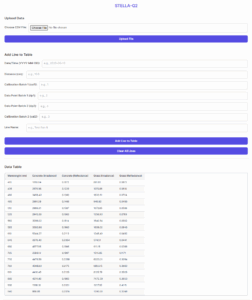Inna Shapovalenko and Alexa Matson:
Open-Source Engineering for the
Future STEM Workforce with STELLA
Building Real-World Engineering Skills Through Open Source
Inna Shapovalenko’s and Alexa Matson’s Journey with the STELLA project exemplifies how open-source engineering projects can provide students with authentic workforce development experiences. During their summer internship at the Space Science and Engineering Center at the University of Wisconsin–Madison, they contributed to both hardware and software development while gaining exposure to collaborative engineering practices that mirror professional environments.
Shared files include the Spectroscopic Mystery activity with worksheet and presentation and Q2 case designs by Inna and Alexa:
Hardware Engineering Experience
Working as a team under the supervision of Dr. Sam Batzli, CIMSS/Space Science & Engineering Center, and Alexa Ross, Research and Outreach at the Cooperative Institute for Meteorological Satellite Studies, Inna and Alexa Matson tackled a practical engineering challenge: designing cases for the STELLA-Q2 spectrometer that could accommodate a 2200mAh battery. This project required them to apply 3D modeling skills, understand electronic component integration, and consider user interface design principles.
The case design work provided Inna and Alexa with experience in mechanical engineering fundamentals, including component packaging, thermal management considerations, and manufacturing constraints for 3D printing. Each version they developed addressed different user needs, teaching valuable lessons about design iteration and requirement analysis.
Software Development in Real Applications
Beyond hardware work, Inna developed web-based tools that would be used by educators and students worldwide. Her first website, built using Python Flask and HTML, supported both STELLA-1.1 and STELLA-Q2 systems. The platform enabled users to upload CSV files from the device’s SD card, input measurement parameters, and generate spectral graphs with accompanying data tables.
This development work exposed Inna to full-stack web development, database management, and user interface design – all critical skills in today’s technology workforce.
Custom STELLA-Dataviewer created by Inna from HTML and Python Flask.
Community-Driven Development Process
Inna and Alexa’s work contributed to the broader STELLA community, which operates through an open-source development model hosted on GitHub. Their work, funded in part by AmericaView and WisconsinView, demonstrates how student contributions to open-source projects can have immediate practical impact while providing valuable professional development experience. The STELLA project maintains an active community forum where users share experiences, request features, and collaborate on improvements.
They documented their contributions in the community forum, sharing their case designs and software tools with the global STELLA user base. Their story demonstrates how students can contribute meaningfully to open-source projects while developing professional skills.
Iterative Design Based on User Feedback
A crucial workforce development experience came when Inna and Alexa received feedback from educators using their tools. After discussions with teachers, they recognized that “a simpler version of the tool was needed—one that focuses on generating a table of irradiance and reflectance values for each material at specific wavelengths.”
This feedback led to the development of a streamlined version, which was subsequently deployed to Render for easier classroom access. The experience of receiving user requirements, redesigning based on feedback, and deploying improved solutions mirrors common professional software development cycles.
Open-Source Collaboration Skills
Through their STELLA work, Inna and Alexa gained experience with collaborative development practices essential in modern engineering environments:
- Version Control: Managing code and design files in shared repositories
- Documentation: Creating clear instructions and specifications for other users
- Community Engagement: Participating in forums and responding to user needs
- Cross-disciplinary Communication: Working with educators, scientists, and fellow engineers
Preparing for Technical Careers
Inna and Alexa’s internship provided exposure to the type of interdisciplinary problem-solving that characterizes modern STEM careers. They worked across hardware and software domains, interfaced with end users, and contributed to a project with global reach. Their solutions needed to be both technically sound and practically implementable by users with varying technical backgrounds.
The open-source nature of the STELLA project meant that Inna and Alexa’s work would continue to be used, modified, and improved by others – providing them with a portfolio of real-world applications and community impact that extends beyond traditional academic projects.
Skills for the Modern Workforce
Through their STELLA contributions, Inna and Alexa developed competencies increasingly valued in STEM careers:
- Systems Thinking: Understanding how hardware, software, and user requirements interconnect
- Agile Development: Iterating designs based on user feedback and changing requirements
- Technical Communication: Documenting work for diverse audiences and skill levels
- Open Collaboration: Contributing to community-driven projects with distributed teams
Community Impact and Continued Development
Inna and Alexa’s case designs and software tools became part of the STELLA open-source library available to people worldwide. Their work demonstrates how student contributions to open-source projects can have immediate practical impact while providing valuable professional development experience.
The GitHub community forum continues to serve as a platform where students, educators, and researchers share improvements and innovations, creating a sustainable model for workforce development through authentic engineering practice.
A Model for STEM Workforce Preparation
Inna and Alexa’s experience illustrates how open-source engineering projects can bridge the gap between academic learning and professional practice. By contributing to real tools used by a global community, students gain experience with the collaborative, iterative, and user-focused approach that characterizes modern engineering work.
Their journey from interns to contributors in the STELLA community demonstrates how open-source projects can provide students with portfolios of meaningful work, professional networks, and practical skills that translate directly to STEM career success.
Related video: Student Voices: Real Engineering Success with STELLA Instruments
